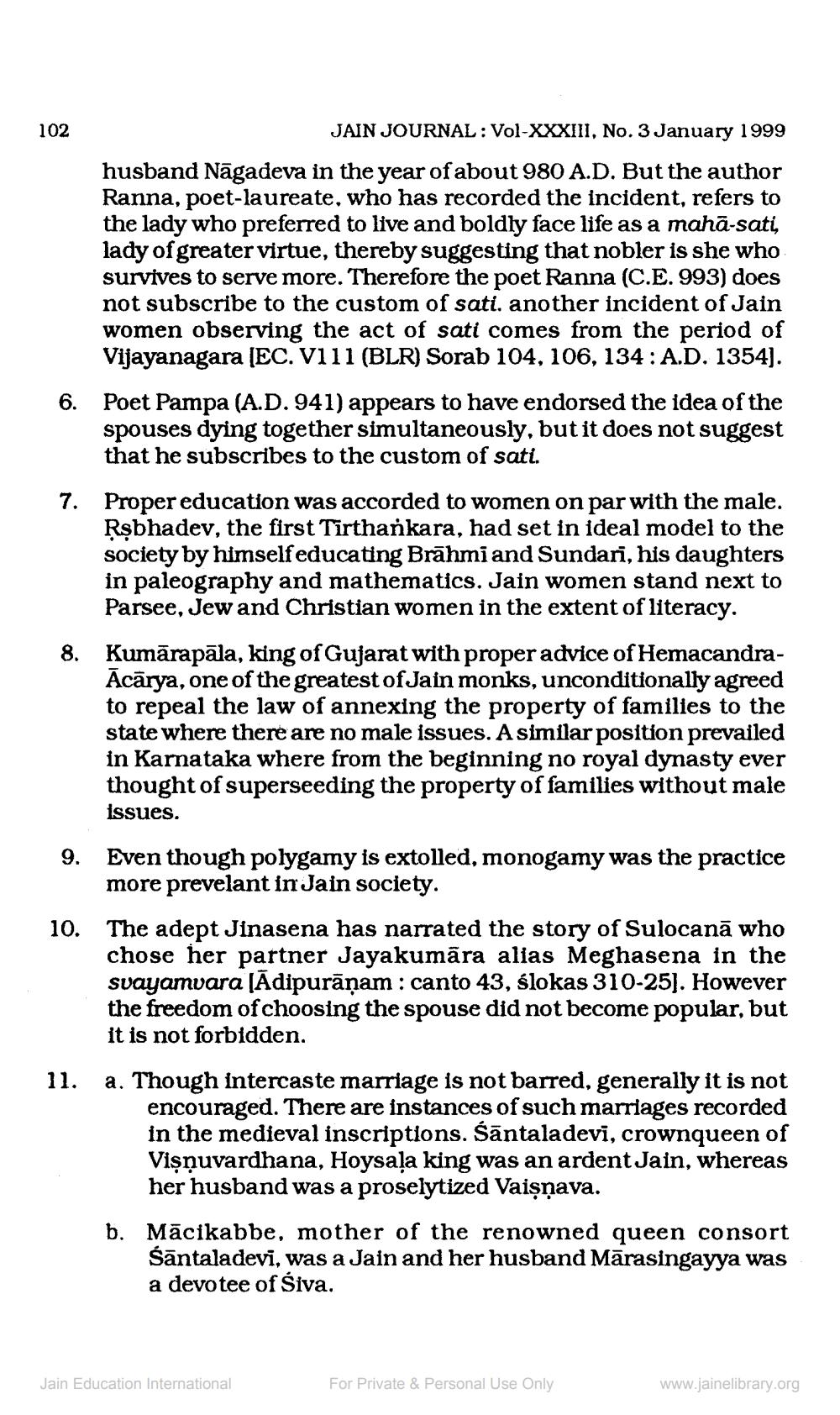________________
102
JAIN JOURNAL: Vol-XXXIII, No. 3 January 1999 husband Nāgadeva in the year ofabout 980 A.D. But the author Ranna, poet-laureate, who has recorded the incident, refers to the lady who preferred to live and boldly face life as a mahā-sati, lady of greater virtue, thereby suggesting that nobler is she who survives to serve more. Therefore the poet Ranna (C.E. 993) does not subscribe to the custom of sati. another incident of Jain women observing the act of sati comes from the period of Vijayanagara (EC. V111 (BLR) Sorab 104, 106, 134: A.D. 1354).
Poet Pampa (A.D. 941) appears to have endorsed the idea of the spouses dying together simultaneously, but it does not suggest that he subscribes to the custom of sati.
7. Proper education was accorded to women on par with the male.
Rşbhadev, the first Tirthankara, had set in ideal model to the society by himself educating Brāhmi and Sundari, his daughters in paleography and mathematics. Jain women stand next to Parsee, Jew and Christian women in the extent of literacy.
Kumārapāla, king of Gujarat with proper advice of HemacandraĀcārya, one of the greatest of Jain monks, unconditionally agreed to repeal the law of annexing the property of families to the state where there are no male issues. A similar position prevailed in Karnataka where from the beginning no royal dynasty ever thought of superseeding the property of families without male issues.
9. Even though polygamy is extolled, monogamy was the practice
more prevelant in Jain society.
10. The adept Jinasena has narrated the story of Sulocanā who
chose her partner Jayakumāra alias Meghasena in the svayamvara (Adipurāņam : canto 43, ślokas 310-25). However the freedom ofchoosing the spouse did not become popular, but
it is not forbidden. 11. a. Though intercaste marriage is not barred, generally it is not
encouraged. There are instances of such marriages recorded in the medieval inscriptions. Sāntaladevi, crownqueen of Vişnuvardhana, Hoysaļa king was an ardent Jain, whereas
her husband was a proselytized Vaisnava. b. Mācikabbe, mother of the renowned queen consort
śāntaladevi, was a Jain and her husband Mārasingayya was a devotee of Siva.
Jain Education International
For Private & Personal Use Only
www.jainelibrary.org




